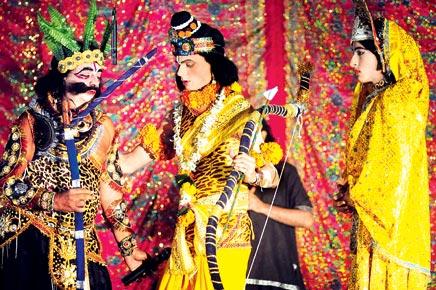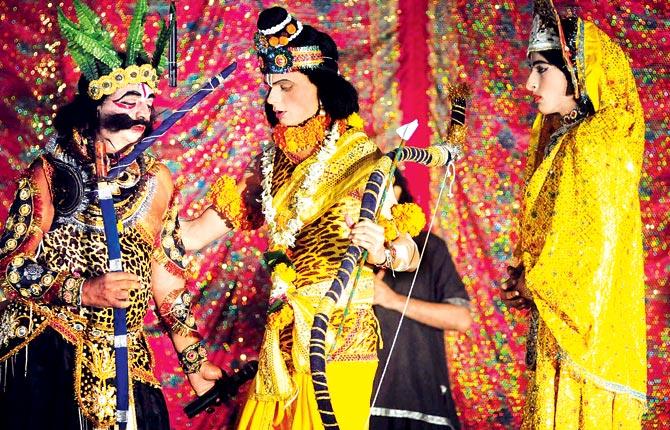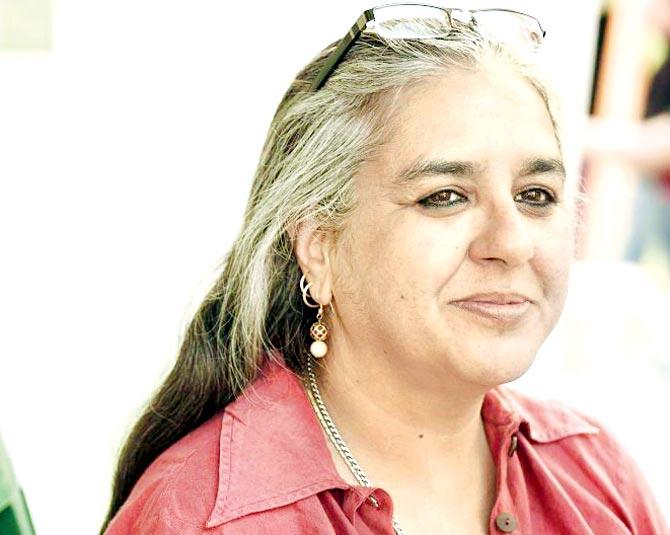Arshia Sattar's translation of the Uttara, the seventh and the final text of the epic Ramayana, begs for answers to uncomfortable questions

A file photo of actors at a Ram Leela performance in Mumbai

A file photo of actors at a Ram Leela performance in Mumbai
In the last text of Valmiki's epic Ramayana, we witness a poignant moment when Lakshamana, overwhelmed by the grief of having abandoned his sister-in-law Sita in the hermitage, pours his heart out to his charioteer Sumantra.
"What greater sorrow could Rama possibly have than rejecting his wife, Janaka's daughter, whose conduct has been pure?" he asks. Unruffled, his charioteer tells him: "This was predicted by the Brahmins."
At the heart of writer Arshia Sattar's just released book, Uttara: The Book of Answers (Penguin Random House), which is a translation of the seventh and the final kanda of the Ramayana, are many such questions that beg answers. Whether the Uttara Kanda satisfies that quest, one can't say. Because over 2,500 years after the Ramayana was first narrated, we are still trying to tie loose ends. However, it was written for the very purpose of unriddling problematic questions, says Sattar, who has a PhD in South Asian Languages and Civilizations from the University of Chicago, and has taught the epic.

Arshia Sattar
"When I started teaching the Ramayana, people asked me questions about why things happened the way they did. I realised that many of the answers to these questions were actually in the Uttara Kanda itself — narrative answers, as well as more complex social and political ones," she says.
Bengaluru-based Sattar, who is well known for her 1996 translation of Valmiki's Ramayana, says her initial motivation to go back to the text was her own oversight of the Kanda in the previous work. "I realised that I had given it [Uttara Kanda] short shrift in my Ramayana translation," says Sattar. This lapse, however, is not hers alone.
"Sometimes, we ignore it, like I did, because it seems to be full of stories that we have heard before. Sometimes, we ignore it because we think that nothing really happens in it."
Mostly, this text is sidelined because its stories make readers uncomfortable. "Bad things happen in this part of the epic — Sita is first banished from the kingdom and then leaves our world forever after she is asked to prove her chastity a second time," says Sattar.
But, despite the tough questions that this Kanda raises, it performs a larger role in the epic's narrative. The word 'uttara' has many meanings, including 'after', 'epilogue', 'ultimate' and 'answer'. While the Uttara Kanda performs a function for all these meanings, Sattar likes to best describe it as a 'true epilogue'. "It comes 'after' the main story and ties up the loose ends."
What the Uttara also does is that it destroys 'the happily ever after ending' that people often associate with the mythological epic. "Once you read it, you understand the Ramayana differently. It changes everything that you thought about the story that should have ended with the victory over Ravana and the triumphant return to Ayodhya," says Sattar, who spent over two years translating the book.
Having said that, Sattar firmly believes that the Uttara won't help find a resolution. "I hope we never have all the answers to the questions that the Ramayana raises. That would make us complacent."
 Subscribe today by clicking the link and stay updated with the latest news!" Click here!
Subscribe today by clicking the link and stay updated with the latest news!" Click here!







